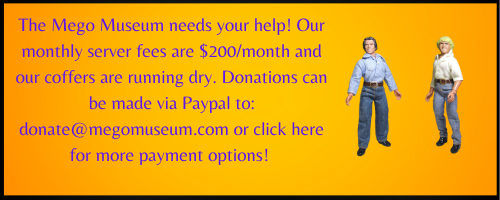Just finished the Stan Lee documentary on Disney Plus. It's a surprisingly fair and accurate history of Stan's contributions to comics. It gives plenty of credit to Kirby and Ditko in particular, and isn't afraid to portray Stan in a somewhat negative light. The infamous radio show argument from 1987 when Stan basically called in to give Kirby crap is included, for instance. So it's a celebration of Stan, but a pretty realistic one, I'd say. It's mostly told through interviews with him over the decades, with some neat little "action figures" created to illustrate the history. My one complaint is they basically jump from the mid-70s to the era of the MCU, so it just bypasses all the years Stan was TRYING to get Hollywood to listen and take Marvel seriously. I think that would have been a compelling avenue to explore, but maybe they didn't have the time or budget.
If you're a comic history buff, I recommend it.
If you're a comic history buff, I recommend it.



Comment